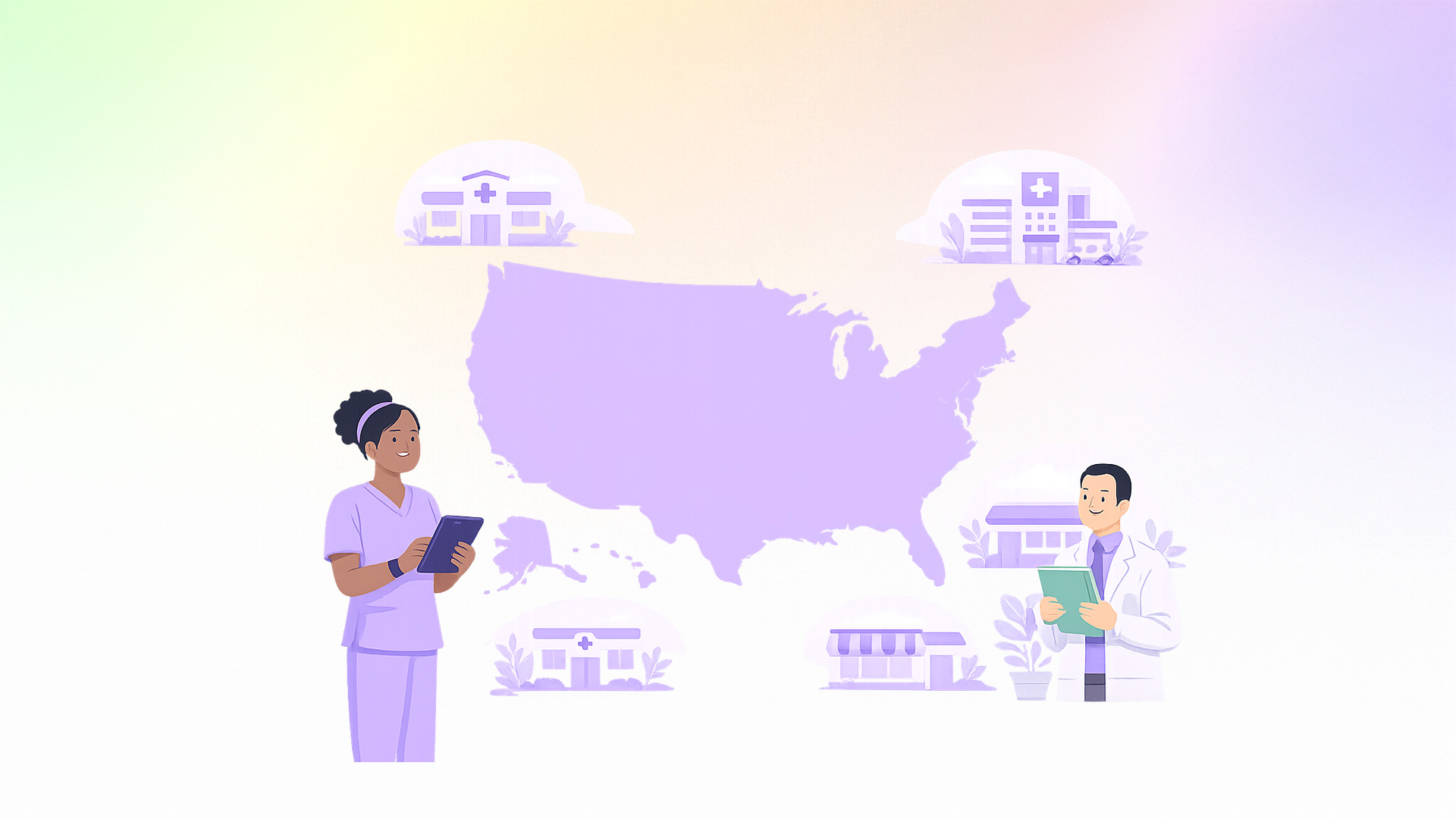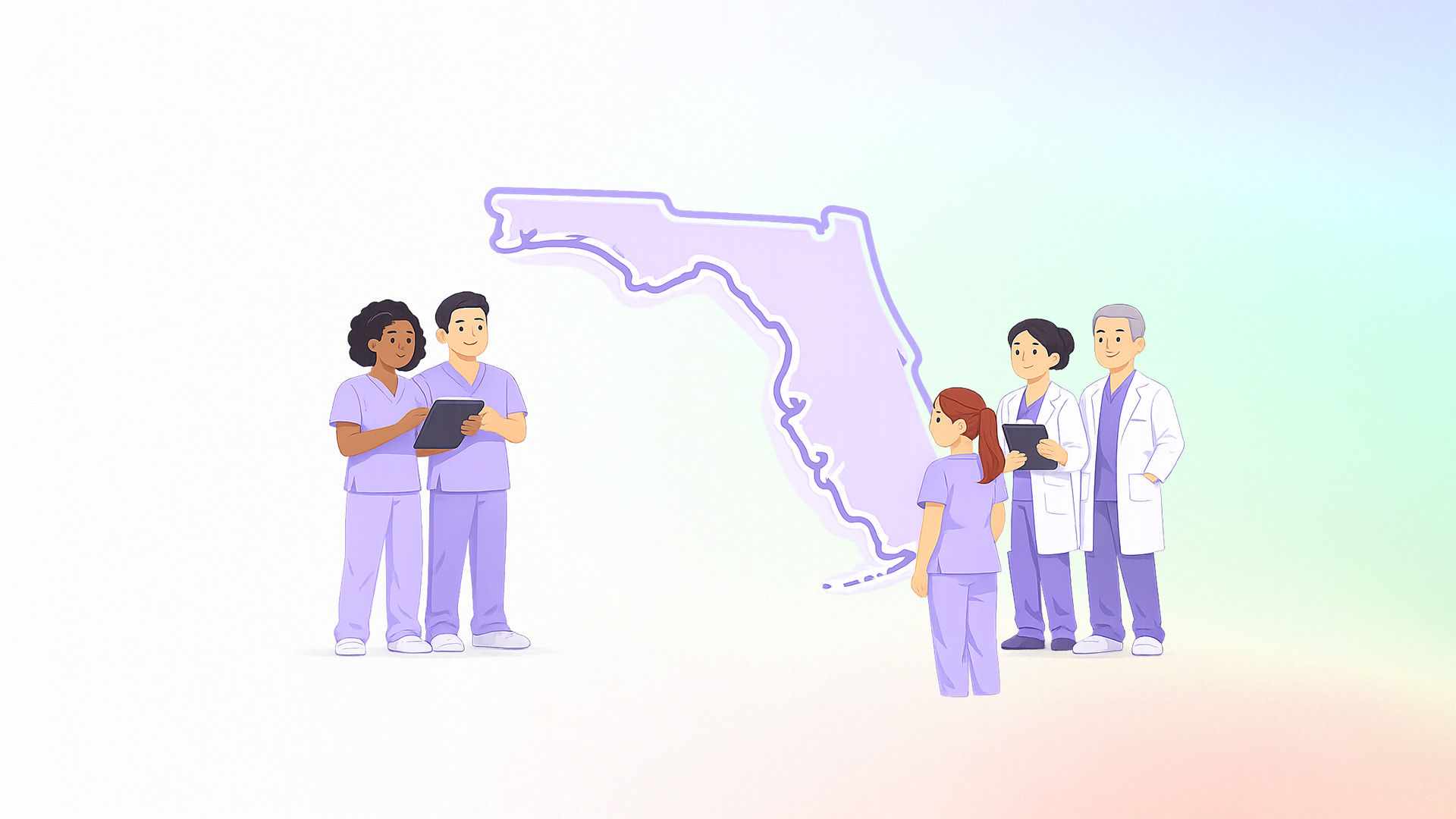Securing a Family Nurse Practitioner (FNP) preceptor is one of the most critical and often most frustrating parts of the journey, as clinical experience is a critical component in becoming an FNP.
With limited availability, high competition, and little guidance, finding the right preceptor can feel like navigating a system that wasn’t built with you in mind.
Navigating clinical placements takes more than persistence: it takes strategy. Clinical placement services play a crucial role in facilitating the process of securing preceptors and clinical sites, ensuring compliance with guidelines and supporting students in completing their clinical requirements efficiently.
Knowing where to look, how to approach potential preceptors, and what actually gets a ‘yes’ can mean the difference between a seamless rotation and months of delays.
How to Find Family Nurse Practitioner Preceptors?
Clinical placement is crucial in keeping FNP students on track towards their graduation date. But it’s no secret that the process can be slow, competitive, and full of dead ends. Whether you go the DIY route or use a paid service, having a strategy is everything.
Free methods: A good starting point (But often a long road)
Most NP students begin with free resources—and for good reason. Your school’s preceptor database, alumni networks, and faculty connections can sometimes open doors.
Reaching out to past students or tapping into your RN circle might also lead to potential preceptors, especially if you’re flexible on location or specialty.
Professional NP organizations (state or national) can be another great resource. Membership often includes access to directories or forums where you can connect with practicing NPs willing to take on students.
These free methods not only help in finding preceptors but also contribute to a deeper understanding of nursing practice by providing practical experiences in various healthcare settings.
But here’s the reality check: while these methods are free, they’re also time-intensive and uncertain. Cold calls and email outreach can lead to weeks (or months) of silence.
Preceptors are overwhelmed, and many simply aren’t taking students right now. So while these tools are worth using, they rarely guarantee results.
Paid services: A faster, more reliable option if timing matters
For students on a tight timeline, or those tired of chasing leads that go nowhere, paid preceptor matching services can offer a much-needed solution.
These platforms work by connecting NP students with a curated network of preceptors who are actively accepting students, across various specialties and locations.
The biggest advantage? Speed and certainty. Instead of waiting weeks for a response or hoping someone eventually replies to your email, these services typically match students within a few weeks and provide clear details up front: location, specialty, availability, and requirements.
The process usually includes browsing available clinical sites, selecting the right clinical site based on your needs, and securing your spot with a deposit. From there, the platform handles the coordination and communication, saving you time (and probably a few migraines).
While paid services do come with a cost, many students find the trade-off worth it, especially when juggling coursework, job responsibilities, and looming clinical deadlines.
Both free and paid approaches to finding preceptors come with their own set of trade-offs. What works best often depends on your timeline, budget, and support system. Here’s a quick breakdown to help you weigh the options and decide which route makes the most sense for your clinical goals:
Free Methods:
Pros:
- No cost
- Utilizes existing school and professional networks
- Builds organic connections within your community
Cons:
- Time-consuming
- No guarantee of placement
- High competition for limited spots
Paid Services:
Pros:
- Faster placement
- Access to a wider range of preceptors
- Less stress and administrative burden
Cons:
- Requires a financial investment
- May limit personal networking opportunities
- Availability can vary by region and specialty
What is a Family Nurse Practitioner (FNP)?
A Family Nurse Practitioner (FNP) is an advanced practice registered nurse (APRN) with specialized training to care for patients across the entire lifespan from newborns and teenagers to adults and older adults.
Advanced practice nursing is a specialized field within nursing that encompasses roles such as nurse practitioners (NPs) and family nurse practitioners (FNPs). In short: if it breathes, they treat it.
FNPs are known for being versatile, patient-centered providers who often serve as the go-to healthcare professional for individuals and families alike.
It’s no surprise that family practice remains one of the most in-demand—and fulfilling—specialties among nurse practitioners. In fact, according to the American Association of Nurse Practitioners (AANP), over 65% of NPs nationwide are FNPs.
Unlike general NPs who may focus on a specific population or condition, FNPs are trained in comprehensive family care. FNP programs include specific coursework on primary health care for families, highlighting the comprehensive, lifelong care that FNPs provide to patients across all age groups.
That means they’re equipped to manage everything from routine checkups to chronic disease management, often building long-term relationships with their patients.
What does an FNP actually do?
The role of an FNP spans a wide range of responsibilities in delivering comprehensive patient care, including but definitely not limited to:
- Performing physical exams
- Diagnosing and treating acute and chronic illnesses
- Prescribing medications and vaccinations
- Ordering and interpreting diagnostic tests
- Developing care plans
- Educating patients on prevention, wellness, and disease management
FNPs work in diverse settings primary care clinics, private practices, outpatient centers, urgent care, and increasingly, via telehealth.
Depending on the state, they may even practice independently without physician oversight.
Areas of specialization for FNPs
While FNPs are trained as generalists, many choose to specialize further. Popular paths include:
- Pediatrics – Caring for infants, kids, and teens
- Geriatrics – Supporting aging adults with complex health needs
- Women’s & Men’s Health – Addressing gender-specific health concerns
- Mental Health – Providing psychiatric care and medication management
- Chronic Disease Management – Guiding patients through lifelong conditions like diabetes or hypertension
- Urgent Care – Treating non-emergent conditions in fast-paced environments
- Occupational Health – Promoting workplace wellness and safety
- Integrative & Holistic Health – Blending conventional medicine with alternative therapies
- Telehealth – Delivering care remotely through digital platforms
FNP career outlook & salary in the U.S.
Family Nurse Practitioners are not just in demand, they’re essential. With a projected 45% job growth over the next decade, FNPs are stepping into one of the fastest-growing roles in healthcare.
Accumulating clinical practice hours is crucial for certification renewal, ensuring that FNPs maintain their skills and stay current in their field.
This surge is driven by the ongoing primary care provider shortage, an aging population, and a nationwide shift toward more accessible, cost-effective healthcare solutions.
In 2025, the average annual salary for an FNP in the U.S. is $127,976, which breaks down to about $61.53 per hour. Whether you’re just entering the field or eyeing your next career move, it’s clear: this role doesn’t just offer clinical impact it offers strong financial return, too.
And if you’re location-flexible? Some cities are offering serious salary incentives. In places like Nome, Alaska, FNPs can earn close to $159,000 annually.
California continues to dominate the high-pay scene, with cities like Berkeley, Marin County, Mountain View, and San Francisco consistently offering salaries in the $150K+ range. Even smaller cities like Jewett, Texas, are stepping up with competitive pay for qualified FNPs.
Combined with job security, autonomy, and a broad scope of practice, the FNP career path is powerful.
Where Do FNP Work?
One of the biggest advantages of becoming a Family Nurse Practitioner is flexibility, FNPs aren’t tied to just one type of clinical setting.
Their broad scope of training allows them to work in nearly any environment where patients seek care. For a nurse practitioner student, clinical rotations in diverse settings are crucial for gaining the experience needed to thrive in these various roles.
Here’s a breakdown of the most common (and sometimes unexpected) places FNPs practice:
- Primary Care Clinics & Family Medicine PracticesFNPs often operate as frontline providers, managing everything from wellness visits to chronic disease care. In many cases, they function much like primary care physicians—assessing, diagnosing, prescribing, and managing care independently.
- Urgent Care & Acute Care CentersThese fast-paced environments give FNPs hands-on experience with a wide variety of acute issues—think sprains, infections, minor injuries, and sudden illnesses. It’s a great setting for those who thrive under pressure and want variety.
- HospitalsFrom emergency departments to maternity wards and critical care units, hospitals offer FNPs exposure to diverse populations and complex health conditions. It’s a great fit for those who want to expand their clinical skills across specialties.
- Community Health CentersIn these roles, FNPs often act as both providers and educators—delivering care while also guiding patients through preventative practices and public health resources, especially in underserved areas.
- Schools & Public Health SettingsFNPs in school-based or public clinics provide accessible care to students and local populations. They handle everything from annual checkups to health education, immunizations, and chronic disease support.
- Long-Term Care FacilitiesFNPs here support aging or medically fragile populations, often coordinating care between interdisciplinary teams, managing chronic conditions, and preventing unnecessary hospital admissions.
- Outpatient Clinics & Specialty PracticesWhether it’s dermatology, cardiology, or women’s health, FNPs often assist or lead care in outpatient settings where procedures and follow-ups happen outside hospital walls.
- Telehealth PlatformsVirtual care is booming, and FNPs are uniquely positioned to thrive here. Their generalist training makes them valuable in remote roles, providing assessments, follow-ups, and health education from anywhere—with just a Wi-Fi connection.
- Private Practice or Independent Roles (in Full-Practice States)In states with full practice authority, FNPs can open their own clinics, work independently, and fully manage patient panels—blending entrepreneurship with clinical care.
- Home Health & Hospice CareSome FNPs bring care directly to patients’ homes, managing recovery, chronic conditions, or end-of-life care. This setting often involves close, ongoing relationships with patients and families.
FNPs wear many hats and that’s the beauty of the role. Whether you’re into fast-paced decision-making or long-term relationship-based care, there’s a setting (or several) that aligns with your style, values, and goals.
How NPHub can help you secure your FNP Preceptor... fast
At NPHub, we understand that securing a Family Nurse Practitioner preceptor isn’t just another box to check—it’s a make-or-break moment in your journey to becoming an NP.
You’ve already pushed through intense coursework, juggled a demanding schedule, and balanced school with your personal and professional life. The last thing you should have to do is spend weeks chasing preceptors who never respond or clinics that are already overwhelmed.
NPHub was built specifically to support nurse practitioner students during one of the most challenging, and often unsupported, phases of their education: clinical placements.
We help students gain essential clinical practice through our network of preceptors, ensuring they accumulate the necessary hours for certification renewal and experiential learning.
We work with a rigorously vetted network of preceptors who are not only qualified and board-certified, but who are actively open to mentoring students. T
These preceptors are located across a wide range of specialties and geographic areas, giving you access to opportunities that align with your goals, timeline, and state requirements.
When you work with NPHub, you’re not just purchasing a placement. You’re gaining a team that’s committed to your success from start to finish. We handle all the paperwork, school coordination, and scheduling logistics so you can focus on what matters most—learning, growing, and graduating on time.
We’ve helped thousands of FNP students find placements when all other options fell through. Whether you’re just getting started or your deadline is weeks away, we’re here to offer not just a solution, but peace of mind.
If you’ve been searching for months with no success, or if you’re simply done trying to do it all alone, it might be time to stop spinning your wheels.
Let NPHub take the weight off your shoulders and help you move forward. Visit our placement page today and take the first step toward securing your clinical rotation with confidence.
Frequently Asked Questions
How early should I start searching for a preceptor?
It is advisable to begin searching for a preceptor 6 to 12 months in advance to secure a successful placement. Early preparation increases your chances of finding a suitable match.
What are the benefits of using a paid service like NPHub?
Using a paid service like NPHub provides numerous benefits, including expedited matching with preceptors, access to a broad network, and efficient management of paperwork, ultimately saving time and reducing stress.
What is the average salary of an FNP in the United States?
The average annual salary for a Family Nurse Practitioner (FNP) in the United States is approximately $127,976, equating to about $61.53 per hour.
In what settings can an FNP work?
FNPs can work in diverse settings such as primary care clinics, hospitals, urgent care centers, and community centers. This variety allows them to address a wide range of healthcare needs.
What is the difference between an FNP and a general NP?
The primary difference between an FNP and a general NP is that FNPs have specialized training in family practice, enabling them to treat patients of all ages, while general NPs may focus on various other healthcare specialties.
Find a preceptor who cares with NPHub
Book a rotation.webp)








.webp)


.webp)



%20(3)%20(2).svg)
.webp)